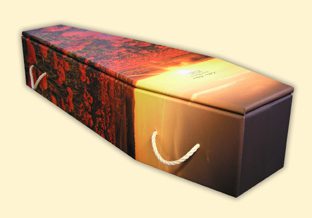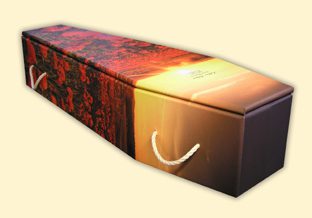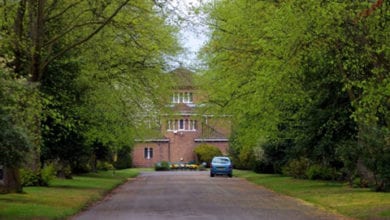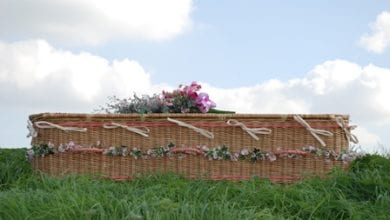Demand for eco-friendly coffins soars

 Coffins made from natural and sustainable sources are growing in popularity thanks to an increasing number of people choosing to have an environmentally-friendly send-off.
Coffins made from natural and sustainable sources are growing in popularity thanks to an increasing number of people choosing to have an environmentally-friendly send-off.
Hainsworth, one of the UK’s leading textile mills, has reported a sales increase of 700 per cent on its woollen coffins in the past year.
In the last five years eco-funerals have risen 100 per cent and now total more than 50,000 a year. Eco-funerals range in style that can entail interments at unconventional sites, coffins made from alternative materials such as wicker and cardboard, cash payments to offset carbon dioxide emissions and forgoing a coffin completely to be buried in a simple shroud.
Spokesman for the National Association of Funeral Directors Dominic Maguire said: “People are concerned that, when they die, they don’t leave much of a carbon footprint. Their feeling is that they want to leave a legacy, a sense that they didn’t use up natural resources.”
David Crampton, president of the Funeral Furnishing Manufacturing Association, believes that 10 per cent of all coffins are now made with alternative materials. “Wicker is by far the most popular, second to that is cardboard but others include willow, wool, bamboo, banana leaf, water hyacinth, felt and recycled paper,” Crampton said.
“As more alternative materials have become available, so the popularity [of green funerals] has grown. Ten years ago, it was just wicker and cardboard. Five years ago, alternative coffins made up just five per cent [of funerals]. The market will probably continue to grow.”
JC Atkinson, of Washington, Tyne and Wear, makes more than 70,000 coffins a year, including solid pine coffins that have Forestry Stewardship Council (FSC) accreditation. Research carried out by the firm has shown that more people would opt for a green send-off if prices were lower.
Image: A cardboard coffin.



